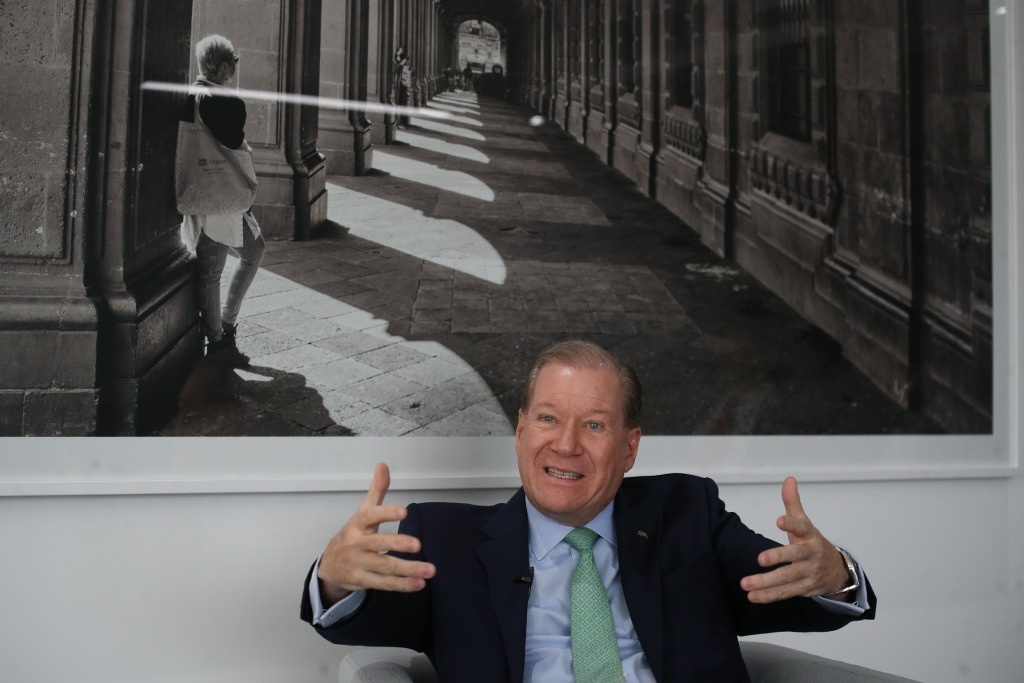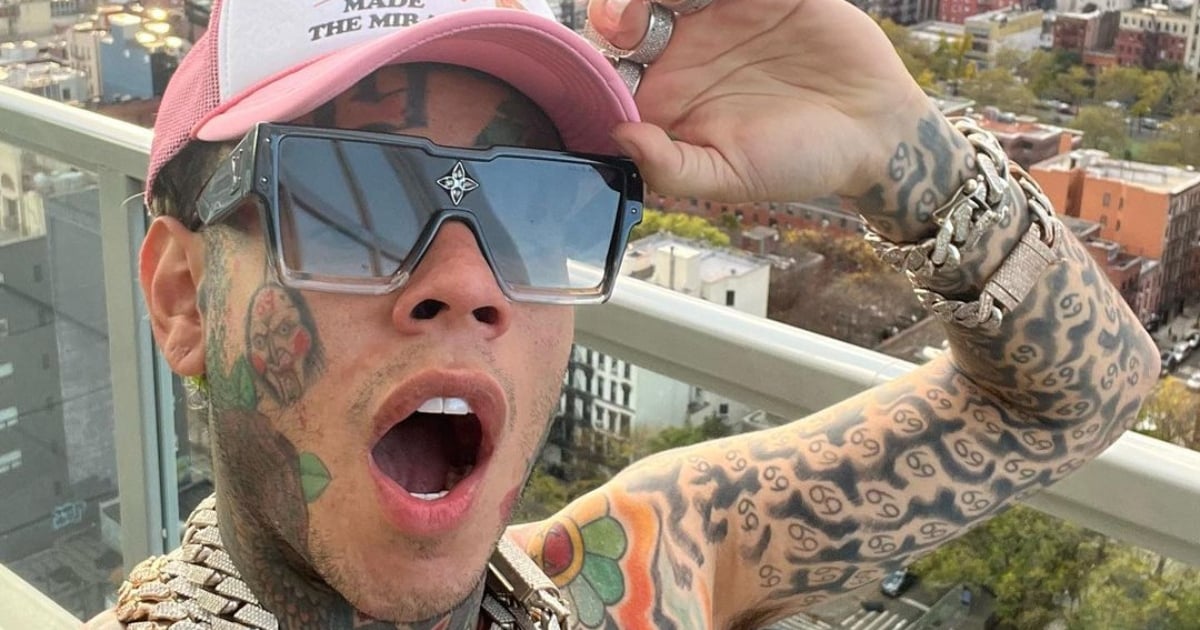The Colombian government will send Juan Guaido to Miami on Monday night. The opposition leader’s adventure on Colombian soil barely lasted a few hours. Guaido announced this morning that he has arrived in Bogota to participate in the International Summit on Venezuela organized by Gustavo Petro, which will take place on Tuesday. Colombian Foreign Minister Alvaro Leyva said hours later that he had not been invited and had entered the country “inappropriately”. Guaidó will fly on an Avianca plane at eleven o’clock at night to the United States.
The Colombian Ministry of Foreign Affairs later clarified that it had not arranged a plane departure for Guaidó, but since he entered the country irregularly, it took him to the airport and verified that he was on a commercial plane. “The ticket was already bought by him,” he explained.
press release | afternoon @tweet Mr. Juan Guaido, a Venezuelan national who was in Bogota irregularly, drove to El Dorado Airport with the intention of checking his departure on a commercial airline to the United States, during the night 👇
– Colombian Ministry of Foreign Affairs (CancilleriaCol) April 25, 2023
The Colombian president did not want anything to overshadow Tuesday’s meeting, where more than 20 countries will try to re-energize dialogue between Chavismo and the opposition, which has been paralyzed for months. Neither side will participate in the summit, but both the government of Nicolás Maduro and the opposition delegation to the dialogue have lent their support to the meeting. Guaido’s presence was a surprise that put Petro in front of a diplomatic struggle from which it was not easy to escape unscathed. The only possibility was to get rid of this uncomfortable guest as soon as possible.
“I have just arrived in Colombia, the same way millions of Venezuelans before me did on foot,” Guaido announced this morning in a statement that he had left Venezuela by land without going through a border post. The intention of his trip was not clear, but he promised to hold a press conference upon his arrival in Bogota. This never happened. And the Petro government has worked since this morning to prevent its presence from overshadowing the international conference.
the news
Current affairs analysis and the best stories from Colombia, every week in your mailbox
Recepion
This is an important week for Petro, who since coming to power last August has sought to play a leadership role in Venezuela. The appointment this Tuesday, in the presence of the United States, was a sign of this position. All the options opened by its entry into the country were a problem for Colombia, which in recent months has restored relations with Venezuela and has the confidence of the United States to lead the rapprochement with the country. Guaido is Maduro’s staunchest enemy. The source who spoke with the President of Venezuela confirmed that he usually says that he will be able to transfer power to anyone except Leopoldo Lopez or Juan Guaido.
Guaido refused to participate in the meeting held by the Colombian government last Saturday with the opposition delegation, which is present these days in Bogota, on the sidelines of Tuesday’s summit. Already at that time the young politician was planning his trip. Opposition sources, who did not know his intentions and discovered on Sunday night, considered that his presence was a way to “interrupt” the international event that focused on the situation in the country after months of collapse. They also assumed that the politician took advantage of the summit to go into exile and flee Venezuela, although he did not confirm this.
Foreign Minister Álvaro Leyva was responsible for determining the position of the Colombian government. He warned this morning that Guaido had not been invited to the summit – nor had any dissident or member of Chavismo – and confirmed this afternoon that he had entered Colombia in an “inappropriate” way, opening the door to possible deportation. And a diplomatic source confirms that even the United States mediated to force the politician to board the plane to Miami tonight via Jimmy Storey, the US ambassador to Venezuela.
In the Colombian executive, there was fear that Guaido might ask for political asylum and the reaction of the government of Nicolás Maduro if that happened. Petro spent months working with ants, the only person working with Chavismo, to cement relations that had been severed for several years and to broker a return to dialogue in Mexico, where the government and the opposition are expected to agree on agreements to celebrate elections with democratic guarantees in Venezuela in 2024.
Chavismo specializes in delaying any process and blowing up any progress overnight, as when he got up from the negotiating table. Any detail Maduro deems grievance, such as asylum for his greatest political enemy, could prompt him to break any bridge for an indefinite period of time. Waiting and delaying are Chavismo’s best assets, which have been sunk by the country’s internal economic crisis, but are determined not to give up power.
The Venezuelan politician was until last December the interim president of Venezuela with the support of many countries, including the United States and Spain. A strategy of parallel government that was born with the intention of overthrowing Chavismo, but did not achieve its goals and ended up being dissolved by the same opposition. On Monday, Guaido managed to be the protagonist again, but this time he was alone. Neither the United States, nor Colombia, nor Chavismo, nor the bulk of the opposition looked at the last step of the politician with honest eyes. The consequences of his sudden departure from Colombia to the United States are still unclear. For now, Pietro avoids his portrait at the summit gate.
Subscribe here To the EL PAÍS newsletter about Colombia and receive all the essential information about the current affairs of the country.

“Music buff. Social media lover. Web specialist. Analyst. Organizer. Travel trailblazer.”



:quality(85)/cloudfront-us-east-1.images.arcpublishing.com/infobae/AW74VGC6AZ5FOSMHDWND4VPFZM.jpg)
:quality(70)/cloudfront-us-east-1.images.arcpublishing.com/metroworldnews/YEKT4GIF6ZCLNNUTTAMSAPSZEY.jpg)

More Stories
La Jornada – The nearby train will not leave Mexico: ABM president
Ecuador is paralyzed for two days due to a serious energy crisis
Energy crisis in Ecuador: The government suspended the work day for two days due to the hydropower deficit